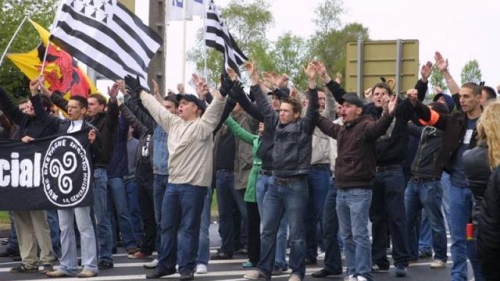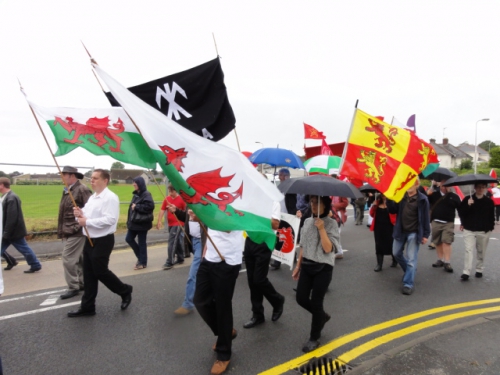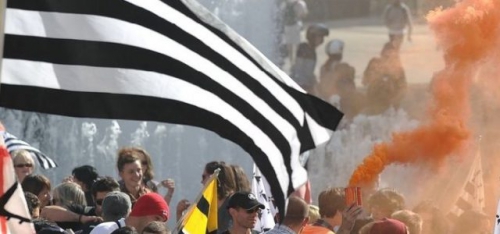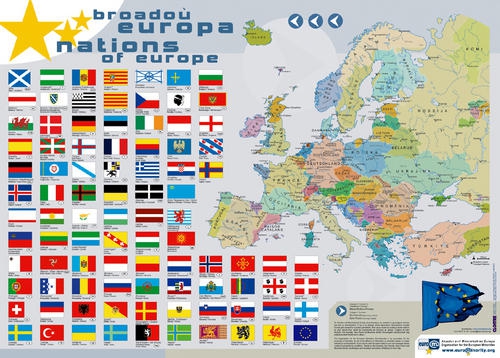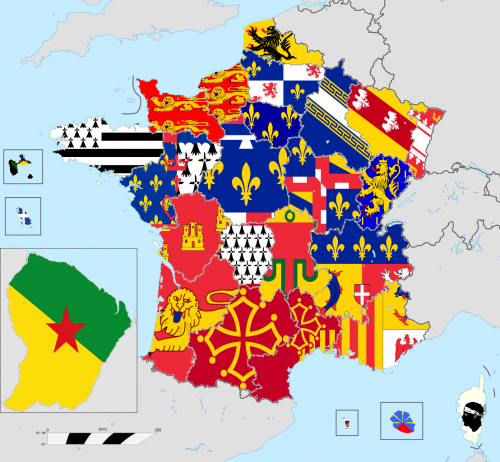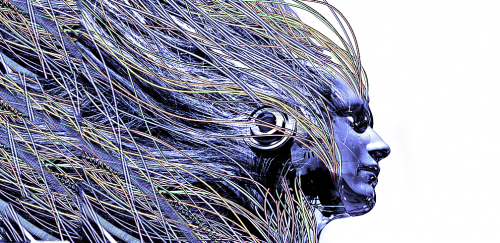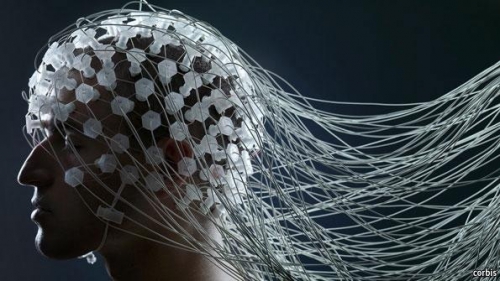For the most part, Western nations are over. There will only be the diaspora, or there will be nothing at all. We are faced with the choice of being absorbed into a materialistic, multicultural mess, or becoming who we are, that is to say, exiles of a defunct world.
The Fifth Political Theory (5PT [2]) believes we should work towards becoming a diasporic tribe rather than focusing on state-level nationalism(s). In other words, we can only “save” European and Eurocolonial peoples who want to be saved by bringing them into a networked tribal community, not converting the de-nationalized masses to an increasingly occult worldview of ethnocentrism, race realism, gender norms, nativism, reactionary politics, etc. I say this not as an evil racist or fascist, but as someone who cares about the continuity of my people, who cannot exist if they are transformed from their roots into something completely foreign. While a certain amount of change and flexibility is endurable, and even in some cases desirable, total replacement is not. And because the national subdivisions of Western civilization are moribund and unable to assert their own existence, we must return to the primordial levels of human social organization if we are to keep the totality of our heritage alive while innovating for an interconnected future.
5PT means fully embracing de-nationalization [3] and working the terms of that situation to our advantage within the post-modern, globalized world. As always, we cannot reverse the flows but only ride them out. Western peoples are going to become a diaspora, even in the West itself. Our response must be to engineer a tribe to face the problem of anomic, atomized life in our society and the failure of political nationalist movements to preserve European and Eurocolonial heritage against the decline in all its forms. We achieve this not by standing athwart history yelling stop, but by grasping the flow of history and letting it pull us as we adjust to the changes of post-modernity.
Put less esoterically, the breakdown of national borders and of national sentiment among Western peoples is not the end of Western peoples but of the nation-state as the organizational unit where our affinities stop. This collapse, rather than leading to seamless superstate blocs as predicted, has created immense identity-driven angst and convulsion as every matter of local folk resists the sprawling explosion of the soulless, materially-driven cosmopolis. These identitarian outbursts are telling us something about the fringes of Western political life. People who care about more than material growth or achieving progressive utopia are speaking up louder than ever. Yet, they often do so out of a passionate bond to dilapidated, outdated, and doomed forms of modern social organization—most problematically they do so as a minority. The ethnos squirms but the demos, which has voted for de-nationalization, retains a firm grip around its neck.
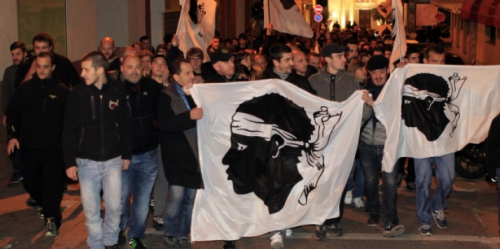
The demos are ultimately following the lead of the cosmopolis. Its paradigms demand that all “citizens of the world” are eligible to live there, whether there is work or not, whether they are assimilable or not. What matters is the ability to be an economic cog, not national integrity. So if anyone can politically belong to any “nation” and claim it as their identity simply by moving there and demanding accommodation, what is to stop the people who resist their grand remplacement [4]from being bound into one identity, which like the one opposing it crosses all borders and subverts all national sentiments? Just as we see a current of decline, we must also look for that counter-current.
Communication technologies and our ability to correspond with one another in real-time—about the social, political, cultural, economic, moral, and spiritual challenges we face as members of the European and Eurocolonial family—draw us closer together than ever before. This happens without regard for borders and makes the decline of the nation-state all the more salient. We become less American or Norwegian or German, and more composite, more Western. Our tribe is already being created from this diaspora of of like-minded Westerners, out of our pre-existing similarities and affinities which technology has seen fit to amplify, even as our nations are being dissolved.
In the long-term, 5PT seeks to make this identity formation more geographically concentrated and clustered, while maintaining its sense of global connectivity and fraternity. We want to reach a point where we can talk concretely about the size, dispersion, and economic niche of the Western diaspora in any given country. The diaspora model thus posits the adoption of sub-national and trans-national identity as a response to the death of national identity and as an extension of the identity formation processes granted to us by post-modern technology.
By sub-national we mean that the Western diaspora will exist in any state where we intentionally form generational communities and tribal networks. Thus there will be a Western diaspora in countries in North America, Europe, and British Oceania, and perhaps further in Latin America and South Africa. There will be American Westerners, French Westerners, Australian Westerners, and so forth. These will have their own local concerns and idiosyncrasies and practices, as they must. At the same time, they will not become those local traits. The Western diaspora of France is not synonymous with “French people.” French people vote for their extinction while the Western diaspora will elect to perpetuate itself.
By trans-national we mean that the Western diaspora will not be walled off into geopolitical cells. Our congregations will be in communion with one another, and our tribal networks will be borderless. Our concerns will be mutual. Since we are all living in foreign countries so to speak, we will naturally have more affinity for one another as members of the same tribe than we do with our out-group neighbors. To be trans-national is to belong to a community not limited by territory. So the Western diaspora will exist in multiple countries, but not be of those countries. I am a Westerner if I am in Chile or in Britain, though I may have come from the Western congregation in Chile to the one in Britain. Our shared culture and values will be deeper than that we have with other peoples living in Chile or Britain.
Members of a foreign minority form their own distinct people regardless of where they dwell, so long as their ties to their own kind remain stronger than their ties to those who are foreign to them. That is the power of the diasporic model, that congregations of Westerners can exist anywhere enough former European or Eurocolonial nation-states are found, and retain their sense of cohesion. They are in, but not of.
In many ways, it is a return to the ways of the Old World and its scatterings of people across pre-modern states both large and small, such as the Jews, Armenians, Greeks, and Germans of Europe and the Middle East. This rather differs from the modern, national impulse of gathering of all X into the state of X-land, or converging all people of X-land into the identity of X. And it of course challenges the contemporary impulse of denying that X exists in the first place while claiming that X-land belongs to the world. Rather, we observe that the borders and demographics have fallen where they are, and that X can be found irrespective of where X is “supposed to be” or originally from. We are interested in the ur-identity of the tribe, not in the ancestral urheimat. This detachment will become our strength.

This is an entirely different way of thinking about ourselves and our place in the world than Westerners are accustomed to. Even the descriptive terms I have preferred to use in place of “white people” so preferred by nationalists—Europeans and Eurocolonials—reflect that older (but not primordially older) conception of geography-plus-nationality. What we are approaching now is the possibility of nationality-sans-geography. The European stock and its extra-continental stocks overseas are part of the same people. Even if all other ethnocentric and civilizational rationalizations for this could be deconstructed it would still be so that they are one people, if only because a coalition of Others have declared them so. Rome and her allies became Rome just as Carthage and her allies became Carthage.
The external pressures upon the Western diaspora will facilitate this, since those who are most ethnocentric and culturally traditionalist will react by doubling down and passing those memes and genes on, while those who are the least will leave the diaspora and fold into the identity of the state they live in and the people they dwell among. The sub-national, trans-national character of the Western diaspora will intensify as time progresses.
This is not necessarily a happy situation. But the worst that can be said about the diaspora model is that people do not want it to happen, not that it can’t work. Reaching back into history for the super-structure we called the nation-state and trying to drag it into the future is not viable. What is viable is the primordial sentiment, that most basic idea that kindred people are an extended tribe, regardless of their geographic dispersal and the composition of the polities they dwell in. If my brother lives in Britain, he is still my brother.
Source: https://fifthpolitical.wordpress.com/2017/05/10/sub-natio... [5]



